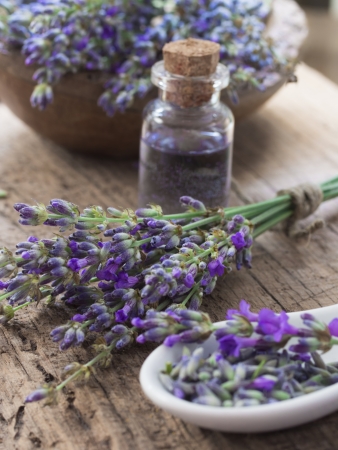Introduction to British Botanicals in Skincare
In recent years, the skincare industry in the UK has witnessed a marked shift towards sustainability, with an increasing number of brands and consumers turning their attention to local and native botanicals. This movement is more than just a trend; it represents a deeper cultural connection to the British landscape, heritage, and ecological responsibility. For many in the UK, choosing products infused with homegrown ingredients such as elderflower, nettle, or chamomile is not only about supporting environmental stewardship but also about embracing a sense of place and tradition. As sustainable skincare gains momentum, understanding the unique role of British botanicals becomes essential—both for their proven efficacy and for their resonance with consumers seeking authenticity and locality in their daily routines. Exploring these native plants allows us to celebrate what is distinctively British while making conscientious choices for our skin and the planet.
2. Notable Native Botanicals: Heritage and Properties
Britain’s countryside is rich with native botanicals that have been celebrated for centuries, both in folklore and traditional remedies. Today, these time-honoured ingredients are finding renewed relevance in sustainable skincare, thanks to a blend of ancestral wisdom and modern scientific validation. Below is an overview of some of the most cherished British botanicals – nettle, elderflower, sea buckthorn, and heather – highlighting their heritage uses alongside their proven benefits in contemporary formulations.
Nettle (Urtica dioica)
Nettle has long been prized in rural British communities for its soothing and strengthening properties. Traditionally used in herbal infusions to alleviate skin irritations and promote hair health, nettle is now recognised for its abundance of vitamins A and C, minerals such as iron and silica, and its anti-inflammatory qualities. These properties make it especially suitable for calming sensitive or reactive skin.
Elderflower (Sambucus nigra)
Elderflower has a storied place in British folk medicine as a gentle remedy for skin brightening and toning. Its delicate blossoms were commonly infused in balms and washes to soothe irritation and reduce redness. Modern research confirms elderflower’s antioxidant profile, particularly its flavonoids, which help protect the skin from environmental stressors while promoting a clear complexion.
Sea Buckthorn (Hippophae rhamnoides)
Found along British coastlines, sea buckthorn berries have been used historically to heal wounds and nourish the skin. Their vivid orange colour signals a rich content of carotenoids and omega fatty acids. In contemporary skincare, sea buckthorn oil stands out for its ability to support skin regeneration, boost elasticity, and deliver deep hydration without clogging pores.
Heather (Calluna vulgaris)
Heather is an emblematic plant of British moorlands, often associated with tradition and resilience. Infusions of heather were once applied to cleanse and calm the skin. Recent studies highlight heather’s polyphenols and tannins, which provide antioxidant protection and contribute to an even skin tone.
Comparison Table: Key Native Botanicals
| Botanical | Traditional Use | Main Scientific Benefits |
|---|---|---|
| Nettle | Soothing skin irritations; hair rinses | Anti-inflammatory; rich in vitamins & minerals |
| Elderflower | Brightening; calming irritated skin | Antioxidant; reduces redness |
| Sea Buckthorn | Wound healing; nourishing dry skin | Omega fatty acids; promotes regeneration |
| Heather | Cleansing; calming | Antioxidant; supports even tone |
The unique synergy between these botanicals’ heritage uses and their scientifically acknowledged benefits demonstrates why they are increasingly favoured by those seeking natural, effective, and sustainable skincare solutions rooted in British tradition.
![]()
3. Environmental Impact and Sustainable Sourcing
One of the most compelling reasons to incorporate local and native British botanicals into sustainable skincare is the positive environmental impact that comes from prioritising ingredients grown close to home. By focusing on botanicals cultivated within the UK, brands and consumers alike can significantly reduce the carbon footprint associated with long-distance transportation, storage, and importation of exotic raw materials. This conscious shift not only addresses climate concerns but also ensures fresher, more potent ingredients due to shorter supply chains.
Supporting British growers is another crucial aspect of sustainable sourcing. When local farmers and cultivators are given priority, the economic benefits remain within communities, encouraging small-scale agriculture and traditional horticultural practices. This reinvestment in local expertise helps maintain agricultural heritage and fosters resilience in rural areas facing economic challenges.
Moreover, utilising native botanicals actively contributes to biodiversity. Native plants are inherently adapted to the British climate and soil, requiring fewer chemical inputs such as fertilisers and pesticides. Their cultivation promotes healthier ecosystems by providing habitats for pollinators and other wildlife essential to ecological balance. Encouraging biodiversity through the use of local species not only supports sustainability in skincare but also aids broader conservation efforts across the UK’s countryside.
4. From Garden to Jar: Ethical Production Practices
British skincare brands are increasingly recognising the value of ethical production, embracing a holistic approach from responsible harvesting to considered packaging. This commitment to sustainability ensures that the journey from garden to jar honours both the land and local communities.
Responsible Harvesting of British Botanicals
Many leading UK brands now prioritise locally sourced and native botanicals, ensuring ingredients are harvested in ways that protect biodiversity and encourage regrowth. Wildcrafting—gathering plants from their natural habitats without depleting resources—is carefully managed, often involving collaboration with conservation groups or small-scale farmers. Such practices not only safeguard plant populations but also support rural economies.
Minimal Processing for Maximum Efficacy
Once harvested, botanicals undergo minimal processing to preserve their natural properties. Brands avoid harsh chemical treatments and excessive refinement, maintaining the integrity of vitamins, antioxidants, and essential oils found in British herbs and flowers. The table below outlines some typical methods:
| Processing Method | Description | Example Botanicals |
|---|---|---|
| Cold Pressing | Extracts oils without heat, preserving nutrients | Rosehip, Sea Buckthorn |
| Steam Distillation | Gently distils essential oils from fresh plants | Lavender, Chamomile |
| Dried Infusions | Dried leaves or petals steeped in carrier oils or water | Nettle, Calendula |
Mindful Packaging Practices
Sustainability extends beyond ingredients to packaging choices. Many British skincare producers opt for recyclable glass jars, aluminium lids, and biodegradable cartons. Refill schemes and minimal labelling further reduce waste, aligning with a zero-waste ethos prevalent in conscious British consumer culture.
Through these ethical production practices—responsible harvesting, gentle processing, and eco-friendly packaging—British skincare brands demonstrate genuine commitment to sustainable beauty. This approach not only delivers high-quality products but also nurtures the landscapes and communities at the heart of local botanical traditions.
5. Community and Collaboration
In the evolving landscape of sustainable skincare, one of the most compelling shifts is the emphasis on community and collaboration across the UK. Small-scale growers, local communities, and forward-thinking skincare brands are increasingly coming together to form a resilient and supportive ecosystem rooted in native British botanicals.
Partnerships with Small-Scale Growers
These partnerships often begin at the source: independent growers who cultivate indigenous plants such as chamomile, calendula, borage, and nettle. By working directly with these growers, skincare brands ensure traceability and transparency throughout their supply chain. This direct relationship not only supports local agriculture but also helps preserve traditional growing methods that are well adapted to the British climate and soil.
Empowering Local Communities
Collaboration extends beyond business transactions. Many initiatives actively involve local communities in harvesting, processing, or educational programmes about native plants. This engagement fosters a sense of stewardship for the land while providing meaningful employment opportunities in rural areas. Additionally, it encourages a greater appreciation for the unique properties of British botanicals within the wider public.
Brands Leading by Example
A number of pioneering UK-based skincare brands have built their ethos around these collaborative efforts. They champion locally sourced ingredients on their labels and share stories of their partners in marketing campaigns, thus bringing attention to the people behind the products. This transparency not only strengthens consumer trust but also sets new standards for ethical sourcing in the beauty industry.
Cultivating a Supportive Ecosystem
The collective impact of these collaborations is profound. By investing in local supply chains and knowledge-sharing networks, stakeholders contribute to biodiversity conservation, regional economic resilience, and innovation in sustainable skincare. Ultimately, this approach champions a more circular economy—one where native British botanicals are celebrated for their efficacy and cultural heritage, ensuring they remain central to both our landscapes and our self-care routines.
6. Celebrating British Identity through Skincare
In recent years, there has been a growing appreciation for skincare products that are not only effective but also thoughtfully rooted in local culture and tradition. By integrating native British botanicals into sustainable formulations, these products do more than simply care for the skin—they serve as a daily reminder of the rich natural heritage and unique landscapes of the British Isles. Using ingredients like heather, elderflower, and sea buckthorn, locally inspired skincare helps foster a sense of belonging and pride among users who value provenance and authenticity.
For many, applying a moisturiser infused with wild English chamomile or cleansing with a balm rich in Scottish thistle becomes an intimate ritual that connects them to generations of traditional knowledge and the gentle rhythms of the countryside. These small acts of self-care can evoke memories of childhood walks along hedgerows, the scent of wildflowers after rain, or holidays by the rugged coast—each product acting as a tangible link to place and history.
This focus on local botanicals not only supports regional growers and artisans but also reinforces the importance of environmental stewardship. By choosing ingredients cultivated using regenerative practices on British soil, brands and consumers alike participate in safeguarding native species and promoting biodiversity. Such choices send a clear message: caring for our own skin need not come at the expense of the land we call home.
Ultimately, skincare that celebrates British identity offers more than just surface-level benefits. It provides an opportunity to reflect on personal values, honour cultural heritage, and find beauty in everyday routines grounded in a meaningful sense of place. As this movement continues to grow, it invites us all to reconnect—with nature, with our communities, and with ourselves—through simple yet profound acts woven into daily life.


